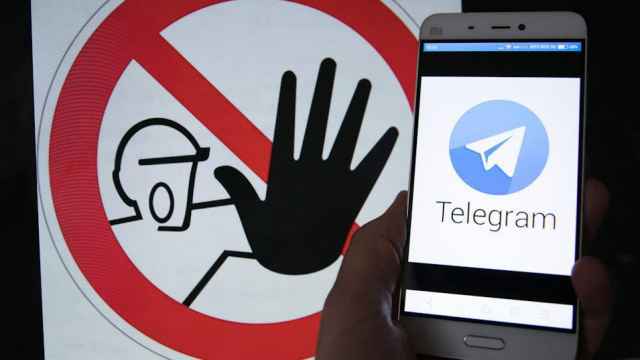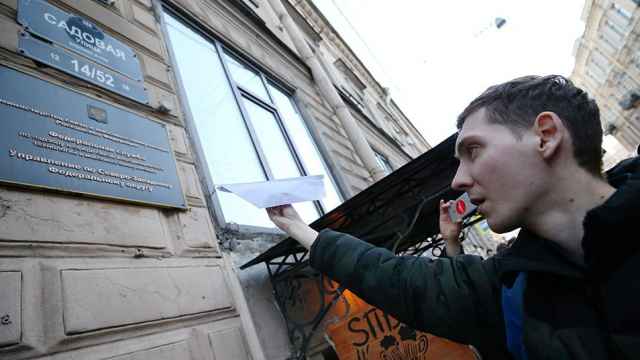Russian Internet users continue to have difficulty accessing major online services as state regulators disrupt online services in their effort to ban the Telegram messaging service.
State media regulator Roskomnadzor began blocking Telegram on April 13 after the messenger app refused to grant security services access to its users’ encrypted communication.
Google announced Monday that it was investigating reports that some users in Russia are unable to access its products, including Gmail and YouTube.
Roskomnadzor told Interfax on Tuesday that it was in talks with Google and Apple over its demands to remove Telegram from their platforms. The banned app has been using a technique that allows it to “hop” to a new IP address when the one it’s using is blocked by the Russian censors.
As a result, almost 18 million Internet Protocol (IP) addresses — used by Telegram to remain accessible in Russia —have been blocked, according to an online tracking tool. Developed by hosting service executive Filipp Kulin, the tracker shows thousands of Google Drive, YouTube.com and Google.com IP addresses blacklisted by Roskomnadzor.
“There is nothing in the court order that speaks to Roskomnadzor’s entitlement to disrupt Russian residents’ access to other perfectly lawful, routine online services,” Human Rights Watch Russia program director Tanya Lokshina wrote in a dispatch Tuesday.
Ordinary Russians could not buy travel tickets, transfer or take out money, purchase insurance policies, or play online games, she added. “Life’s gone haywire,” Lokshina observed. “Business as usual is done and over with.”
Meanwhile, state-run polling indicates that nearly two-thirds of surveyed Russians are indifferent toward the ban, with only 12 percent reporting that they use the world’s ninth-most popular messaging app.
The International Network of Civil Liberties Organizations urged Google, Amazon, Microsoft and Apple to condemn what it called “one in a series of attacks on people’s fundamental rights to privacy and freedom of expression in Russia.”
“Russia is setting a dangerous precedent that may reach beyond its borders. Restrictive state actions such as these undermine democratic structures in countries where the rule of law is challenged by rights-infringing surveillance regimes,” INCLO said in an open letter Monday.
A Message from The Moscow Times:
Dear readers,
We are facing unprecedented challenges. Russia's Prosecutor General's Office has designated The Moscow Times as an "undesirable" organization, criminalizing our work and putting our staff at risk of prosecution. This follows our earlier unjust labeling as a "foreign agent."
These actions are direct attempts to silence independent journalism in Russia. The authorities claim our work "discredits the decisions of the Russian leadership." We see things differently: we strive to provide accurate, unbiased reporting on Russia.
We, the journalists of The Moscow Times, refuse to be silenced. But to continue our work, we need your help.
Your support, no matter how small, makes a world of difference. If you can, please support us monthly starting from just $2. It's quick to set up, and every contribution makes a significant impact.
By supporting The Moscow Times, you're defending open, independent journalism in the face of repression. Thank you for standing with us.
Remind me later.






